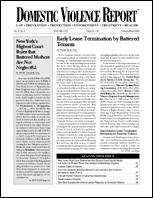VAWA 2018: The Time Has Come for a Full Oliphant Fix
Author: Brent Leonhard.
Source: Volume 24, Number 01, October/November 2018 , pp.1-5(5)

< previous article |next article > |return to table of contents
Abstract:
Indian women are 2.5 times more likely to be victims of rape or assault than other women. One reason is the difficulty of prosecuting crimes against native Americans by non-Indians when they occur on tribal lands, or by native Americans when they occur outside tribal jurisdictions. The Supreme Court’s refusal to recognize tribal authority to prosecute crimes against non-tribal defendants in its 1978 decision in Oliphant v. Suquamish Indian Tribe has resulted in a jurisdictional no-man’s land where crimes against native American women go unprosecuted and unpunished. This article reviews the initial court rulings that led to Oliphant and subsequent litigation and legislation seeking to recover legal protections lost under Oliphant, and points to emerging trial and legislative strategies that may reverse Oliphant entirely and restore justice to tribal women victimized by domestic or sexual assault.Keywords: Oliphant v. Suquamish Indian Tribe; Confederated Tribes of the Umatilla Indian Reservation (CTUIR); Tribal Law and Order Act of 2010; Taryn Minthorn
Affiliations:
1: Office of Legal Counsel for the Confederated Tribes of the Umatilla Indian Reservation (CTUIR).